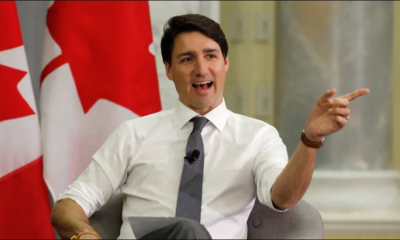World
Should have closed Guantanamo on my first day: Obama

Washington: US President Barack Obama has said that he should have closed the Guantanamo Bay prison on his first day at the White House back in 2009 when there was consensus with Republicans on its shutting down, Efe news agency reported.
Asked at an event in Cleveland, Ohio, on Wednesday what he would do if he could go back to his first day in the White House, Obama replied, “I would’ve closed Guantanamo on the first day.”
“I didn’t because at that time we had a bi-partisan agreement that it should be closed. I thought that we had a consensus there that we could do it in a deliberate fashion,” the president said.
“The politics got tough, and people got scared by the rhetoric around it… The path of least resistance was to leave it open, even though it’s not who we are as a country,” he added.
Closing Guantanamo Bay prison was one of Obama’s key election promises during his 2008 campaign.
Fifty four of the 122 prisoners that remain at the prison have been approved for transfer to other countries.
In January, the US transferred 20 prisoners: four to Oman, one to Estonia, six to Uruguay, four to Afghanistan and five to Kazakhstan.
With only two years remaining in his presidency, Obama’s administration is working round-the-clock to close the detention centre amidst fierce opposition from the Republicans who gained absolute control of Congress after the November legislative election.
After the Paris terror attacks early this year, the Republican opposition introduced a bill in the Senate to restrict Obama’s ability to transfer prisoners from Guantanamo.
The Guantanamo centre was set up by the George W. Bush administration after the September 11, 2001, attacks in New York to hold alleged terror suspects.
Since then, it has housed around 800 prisoners, most of whom have not been charged.
World
Lockdowns in China Force Urban Communities to Defy Censorship and Vent Frustration Online

Shanghai’s rich middle class is leading a wave of online dissent over the strict and prolonged lockdowns imposed in various parts of the country. Chinese internet censorship is struggling as patience is wearing thin in many urban centers, coming up with creative forms of online protests.
Social Media Posts Revealing Lockdown Tension in Shanghai
Drawn-out lockdowns are nothing new in China as authorities insist with the nation’s zero-Covid policy since the start of the pandemic. Currently over This time around, however, metropolitan areas like Shanghai are increasingly difficult to keep quiet, given that its more than 25 million residents have seen weeks of total isolation along with food shortages and many other service interruptions.
Dozens of towns and reportedly over 300 million Chinese citizens have been affected by lockdowns of different severity. As expected, urban netizens have been most outspoken over their difficulties by finding creative ways to get around state censorship and bans placed on topics, news comments and spontaneous campaigns.
Shanghai residents have been using mobile proxies and hijacking seemingly unrelated hashtags to talk about healthcare issues, delivery failures and the overall severity of their situation. The “positive energy” that the Chinese government wants to transmit during the recent prolonged series of lockdowns does not come naturally to those counting food supplies and online censors are working hard to filter words, trending topics and undesired social media sharing.
WeChat groups and message threads are under constant monitoring. Posts questioning the zero-Covid approach have been quickly deleted, including by leading Chinese health experts like Dr. Zhong Nanshan. Video footage is soon censored and protests and investigations are quickly made to disappear.
Where this has not worked, officials have exposed banners with warnings and outright threats like “watch your own mouth or face punishment”, while drones have been patrolling the city skies. Yet, if anything, this has led to further tensions and unspoken confrontation with Shanghai’s educated and affluent middle class.
Creative Online Solutions Harnessing Civic Energy
Announcements by Chinese social media that they would be publishing the IP addresses of users who “spread rumors” have not helped either. Tech industry research has shown that much of Asia’s tech-savvy population has a habit of using mobile proxies and other privacy tools, quickly finding workarounds to browse the internet freely and talk to the world about the hottest topics.
The sheer volume of forbidden posts is already a challenge for the very censorship system, experts explain. Unable to track all trending hashtags, state workers overlook topics that speak about the US, Ukraine or other popular news. Linking human rights elsewhere to their situation, Chinese online dissidents establish their informal channels and “hijack” the conversation to share personal or publicly relevant information about the Covid suppression in their town.
Sarcastic and satirical posts still dominate. Others hope to evade the censors by replacing words from famous poems or the national anthem. One thing is certain – social media, when harnessed with the right creativity, has proven its ability to mount pressure on the government in even some of the most strictly controlled tech environments like China.























